GE's withdrawal from coal is a step towards a new fossil free era
By Omar Elmawi and Landry Ninteretse*
General Electric (GE), one of the world's largest makers of coal-fired power plants recently announced the company’s intentions to not build any new coal plants. Would this be signaling the final stroke for numerous coal projects across Asia and Africa?
In its statement, GE was categorical to say that it will “continue to focus on and invest in its core renewable energy and power generation businesses, working to make electricity more affordable, reliable, accessible, and sustainable.” However, the exit plan and timeline for existing nuclear and coal power plants are not fully clear as GE has indicated its intention to continue working with customers on existing obligations as it pursues this exit.
This could set the precedent for continued work on projects such as the highly contentious 1,050-megawatt Lamu coal-fired power plant, which GE agreed to design, construct and maintain in May 2018, along with Amu Power. Estimated at $2 billion, the cost of the power plant is by no means negligible. That said, there is still a long way for GE to ensure that the company fully exits the 17 coal power stations it is trying to equip worldwide.
Towards the cancellation of the Lamu project?
The withdrawal of GE represents a blow to Amu power, which has refused to comment on the decision. It comes less than a year after the African Development Bank (AfDB) indicated that it will not fund the coal-fired power plant project in Kenya and that it is withdrawing from financing any coal project on the content. It also comes after this project was halted by a local environmental court, a decision which gave immense hope to the communities which have struggled for years to protect their livelihoods and the socio-cultural heritage of Lamu, a UNESCO heritage site.
GE had come under severe criticism in 2018 after revelations of its involvement in the construction of the Lamu coal plant. Local communities and groups sent a correspondence to the American company asking them to withdraw from the project unconditionally. In its response in February 2019, GE denied its involvement in the project, indicating that it has no ownership interest in the Lamu coal plant. This statement came amidst media reports quoting the CEO of Amu Power expressing his satisfaction at signing a cooperation agreement with GE on the Lamu power facility.
This lack of transparency and continued support of fossil fuel projects saw GE facing mounting pressure from investors and environmental watchdogs to switch to more environmentally sustainable projects. Earlier this year, a coalition of 65 civil society groups from 16 countries where GE is expanding coal signed a letter requesting GE to get out of coal immediately. It was a strong sign that the people from countries like Bangladesh, Indonesia, Mozambique, Turkey, Pakistan, Philippines, South Africa and Tanzania have rejected GE’s rampant coal expansion estimated at 15GW of new coal power.
The potential of Renewable Energy gives a glimpse of the future
More and more financiers are increasingly skeptical of the idea of financing coal projects, especially in Africa and Asia. Last week, The International Finance Corporation (IFC), the World Bank’s private-sector arm which owns equity stakes in many large commercial banks in emerging markets, introduced new climate change conditions for its investments in commercial banks to encourage the lenders to wind down support for coal projects in African, South Asian and South American countries.
This growing ecological awareness and increased moral responsibility among the banking community has led to the upcoming Finance in Common (FIC) Summit, which will bring together for the first time 450 Public Development Banks and Development Finance Institutions from around the world to discuss the alignment of its policies with climate and sustainable development goals. It is hoped that this Summit will finally put people and the planet at the centre of development by bringing greater scrutiny to fossil fuel financing across the world. Civil society from all over the globe is keen to see a joint declaration that puts more restrictions to finance for coal, oil and gas.
GE’s announcement is a step in the right direction but a lot more needs to be done to ensure that the company is firmly on a low-carbon trajectory. GE has the potential to lead the way in renewable energy technology development, and last year’s launch of the world’s largest wind turbine Haliade-X is a demonstration of this potential. However, GE needs to listen to concerns from investors, scientists, climate experts and society, and completely dump its fossil fuel past, focusing on a more just, greener and cleaner future we all deserve.
*Omar Elmawi is the Campaign Coordinator for deCOALonize in Lamu, Kenya and Landry Ninteretse is the Africa Team Leader of 350.org
Climate Defenders gathering: Towards a consolidated strategy
Fifty climate defenders and activists from 23 countries gathered in Curitiba, Brazil from February 5th to 8th to share the stories of their struggles and to build a stronger community of climate defenders.
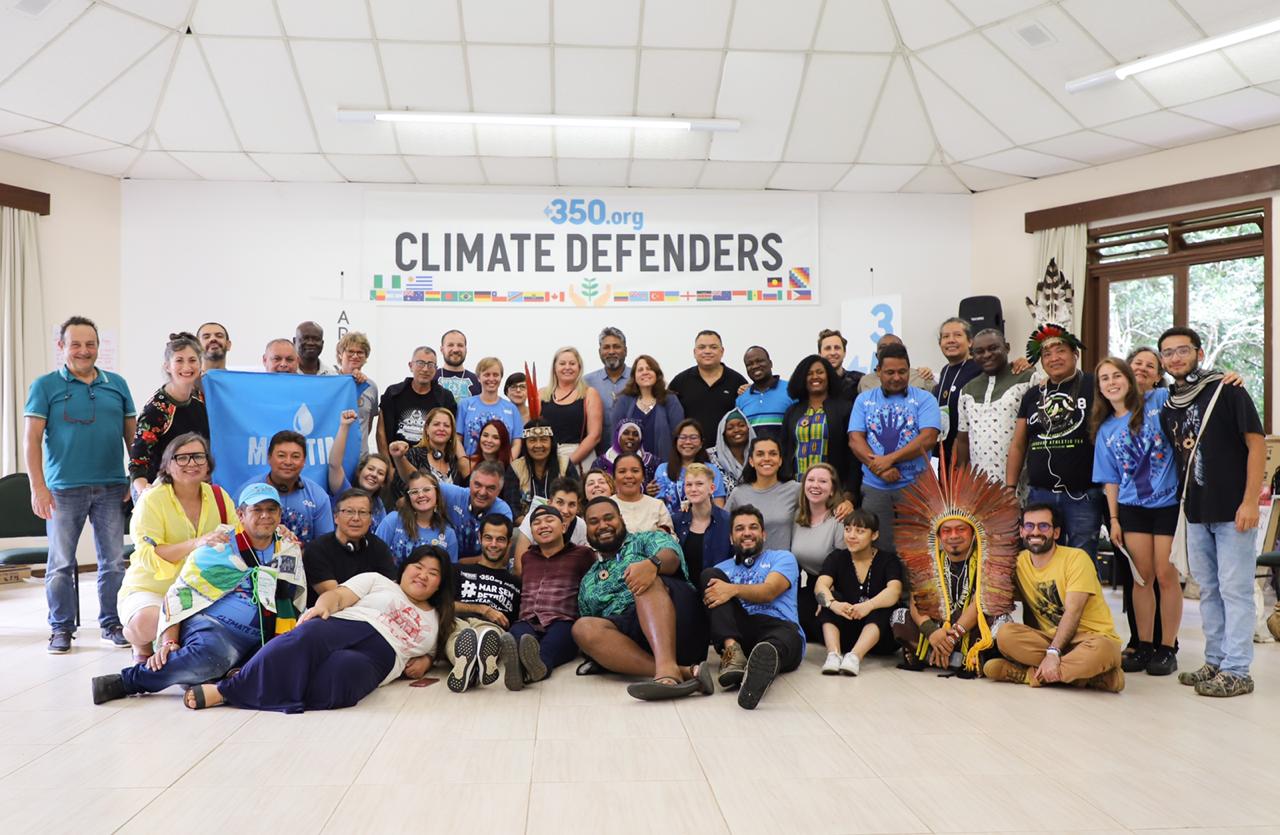
Everywhere climate defenders are facing threats, intimidation, and increased repression as they protect the planet from destruction. In most cases, the fossil fuel industry is responsible for the most severe and disturbing violations of human rights. This gathering provided a space to share experiences, skills and tactics and build a coherent strategy for reacting to crisis moments, including increased visibility, communications strengthened leadership, rapid response and building alliances of legal support.
African representatives at the gathering shared the most common threats they are confronted with, including intimidation by government officials and police, restricted movements and surveillance, forced removal of communities and sometimes verbal abuse by being labelled for instance as ‘anti-development’ activists. They denounced the fossil fuel companies working hand in hand with corrupt politicians, security forces and sometimes private militia in perpetrating such disturbing violations of human rights and freedom.
During the gathering, 350.org launched the Climate Defenders report on Human Rights Abuses by Fossil Fuel Companies. The report highlighted some specific cases from Africa where companies such as Shell in Nigeria) and Amu Power in Lamu (Kenya) are involved. The report shows successful strategies that activists are taking to fight these cases.
"Chevron-Texaco and Shell are directly responsible for more than 45,000 deaths caused by health issues, the displacement of 60,000 people and the dump of more than 18 billion gallons of toxic wastewater into rivers" #AfrikaVuka https://t.co/nGJjxGuVyZ pic.twitter.com/h4ZFDvYQ74
— Christian (@christroi10) February 7, 2020
By targeting the fossil fuel industry, climate activists are attacking directly the heart of the climate crisis. They are not only defending life and nature but also pushing back the increased repression on civil society groups while exposing the liability of the fossil fuel industry in human rights abuses.
Among the proposed solutions to strengthen their fights, participants at the gathering suggested cross-regional solidarity between countries with common struggles, working on the existing protocols to strengthen protection mechanisms and ensuring greater connections between climate activists and the wider human rights defenders community.
Author: Christian Hounkannou, 350Africa Francophone Field Organiser.
As climate talks start in Madrid, a people-centered vision for a fossil-free Africa is gaining ground
The climate crisis has been dominating the mainstream media lately. Every week, we hear about climate-related disasters hitting different regions across the world. At the same time scientists keep sounding the alarm about our diminishing ability to rein in the worst of climate change, activists keep protesting against climate inaction and corporations continue violating human rights.
As the UN and global leaders discuss climate change issues at COP25 - that is the 25th Conference of the Parties to the United Nations Framework Convention on Climate Change (UNFCCC) in Madrid, Spain, Africans are rising in ever-growing numbers to resist the fossil fuels industry and champion adapted and affordable climate solutions. Across Africa, civil society groups and local groups are fiercely working towards setting Africa free from coal, oil and gas dependency. Citizens and communities from Lamu (Kenya) to Bargny (Senegal) to Virunga (Democratic Republic of Congo) to San Pedro (Ivory Coast) and Mpumalanga (South Africa) are standing against big fossil fuel companies that are exacerbating the impacts of climate change. These struggles have felt the need to unite and work closely together under the AfrikaVuka platform to achieve greater results and impact. They deserve recognition, support and solidarity.
We cannot stand and watch our lives, economies, ecosystems and resources being put at risk without speaking out. We refuse to accept that our continent, vulnerable and already severely impacted by the effects of climate change, should become the dumping ground of a dying industry. We denounce and reject the rhetoric that coal companies bring ‘development’ and demand greater and active participation in the discussions on future energy choices. For millions of Africans, climate change continues to worsen inequalities at different levels. Supporting people affected irreversibly by climate change, strengthening adaptation mechanisms and addressing the issue of loss and damage are among other core issues being discussed in Madrid, issues which are the central parts of the Paris Agreement.
Four years ago, the Paris climate agreement was signed at COP21. It wasn’t a perfect agreement, but it was the best we’ve managed to get so far, and one that, if fully implemented, would give us a good chance to avoid the worst-case scenarios on the climate crisis. That agreement set a target to reduce global temperatures well below 2C and aiming for 1.5C. Since then, scientists produced a wealth of increasingly concerning reports and studies confirming how only keeping global temperatures from rising beyond 1.5C we will be able to avoid mass die-off of species, destruction of ecosystems and livelihoods and massive migrations as people are forced to flee their homes to seek refuge elsewhere.
Yet, national governments and other powerful actors have failed so far to deliver the sweeping policies and courageous decisions that would stop the world from burning up even further than it has so far. Emissions keep rising, investments in fossil fuels continue and the most vulnerable among us become more and more so by the minute. There are many reasons why this is happening, many reasons why governments are not acting according to what science dictates and what the people need. Apart from COP21, all other climate talks have often been characterised by hypocrisy, greed, empty promises and procrastination, with big polluters deliberately delaying and sabotaging any significant climate action. The influence of the fossil fuel lobby on our governments and on the climate talks themselves has made it so that real progress has been so far stalled, all to allow a few large corporations and national elites to prosper at the expense of everyone else.
We say “no more”
As the climate crisis escalates, African decision-makers must heed the call of the people and urgently take action by focusing on solutions that eliminate fossil fuels and transition to clean and sustainable energy. At the village, city, district and county levels, people are coming together to challenge the power of the fossil fuel industry. Unions, faith groups and non-environmental groups are joining them to build alternative people-centred solutions. With the continuous energy technology innovations making renewable energy more accessible and affordable, we believe that Africa can and must lead the way in this watershed moment in history, by addressing the climate crisis while creating a more just and equitable world and generating millions of new jobs for its growing youth population powered by technologically advanced renewable sources.
Regardless of the outcomes of the current climate talks in Madrid, the fight against climate change will not stop. It’s clear that a just and rapid transition away from fossil fuels is within reach, in Africa just as anywhere else. In fact, the way we deal with the climate crisis matters as much as how rapidly we act. We cannot expect the climate crisis to be meaningfully addressed unless those in power start taking into consideration other social justice issues such as extreme poverty, extraction, neo-colonialism, lack of freedom and inequality. We cannot see the climate crisis solved without putting at the center the very frontlines communities affected by recurrent floods, droughts, environmental destruction, hunger and forced displacement. COPs will continue to be a failure as long as the UN allows fossil fuel industry lobbyists to walk its halls and to influence complacent politicians not to take the strong action needed against what the UN secretary-general himself calls an “emergency”.
Landry Ninteretse is the Regional Team Leader of 350Africa.org.
The flowers of revolution
The struggle for human rights starts when another person takes land and subjugates the people of that land through laws that undermine their personhood. So what is liberation? Why does the idea of freedom run in the blood of so many and why is it so contagious? The decolonization of Africa was a radical and transformative period where young leaders took to organizing themselves and spoke of the injustices that saw the majority African population being pushed out of economic participation, being dehumanized and outright exploited for labour.
Colonization was the unadulterated rape of nations in the greedy pursuit of control for our natural resources. And slowly this penetration of colonial power seeped into the social fabric of African livelihoods, manifesting as displacement, the vulnerability of women and children heightened, and poverty and injustice became a daily reality.
Tell me today, African child do you not see the same pattern taking on the form in the fossil fuel industry; greed, a disregard for human life and the suffering of many? Tell me African child do you not see the seeds of discord being sowed among us, with promises of jobs, houses and money while our environment is being ripped to shreds, our diversity is being corroded and we are now forced into the exile of the self.
The continent is not being divided by countries any more as with the Berlin Agreement of 1885, it is being chopped up by Exxon, Shell, BP, Total, Anglo American PLC, Sasol Mining, Glencore Xstrata, Exxaro and South32’s South Africa Energy Coal, Yanzhou Coal, Shaanxi Coal.
And as the impacts of climate change increase and we see the rains don’t come, the signs of the times are here. The direct consequences of man-made climate change include: rising maximum temperatures, rising minimum temperatures, rising sea levels
higher ocean temperatures, an increase or decrease in precipitation ( rain and hail)
shrinking glaciers and thawing permafrost. The indirect consequences of climate change, which directly affect us humans and our environment, include an increase in food and water crises, especially in Africa, health risks through rising air temperatures and heatwaves. The economic implications of dealing with secondary damage related to climate change mean vulnerable African countries will go into more debt when the secure loans from foreign nations with natural resource interests.
I come from a family of activists, we are inherently activists, every single African. In us, we have the spirit of radical leaders who brought freedom to nations such as Jomo Kenyatta(Kenya), Kwame Nkrumah(Ghana), Julius Nyerere(Tanzania), Léopold Sédar Senghor(Senegal), Nnamdi Azikiwe(Nigeria), and Félix Houphouët-Boigny(Côte d'Ivoire)
The hunger for freedom starts with one and catches like wildfire. We have everything to lose and we have run out of patience. We are the flowers of revolution and we demand revolutionary energy for our future. The time to deCOALonize is here. #AfrikaVuka
Join a Global ClImate strike near you www.globalclimatestrike.net
The largest day of climate protest in the planet’s history
In a world with rising sea levels, scorching temperatures, devastating fires and more pollution than we can track, we can’t afford to look away. Science and justice demand that we do more than simply address the symptoms of the climate breakdown. We need to build solutions that will not only keep fossil fuels in the ground but improve the lives of billions of people.
On September 20th - 27th, there will be the first all-ages global climate strike. People will walk out of their jobs — some will plant trees, others will join protests. The targets will be as diverse as the geography: in different parts of the planet, people will be sitting down in front of pipelines; demanding that their institutions divest fossil fuel stocks; urging UN nations to increase their carbon-cutting commitments; calling for carbon taxes; insisting on a Green New Deal. And here in Africa:
In Abuja, Nigeria: People will take to the streets to demand that policymakers make greater strides in environmental policies and laws.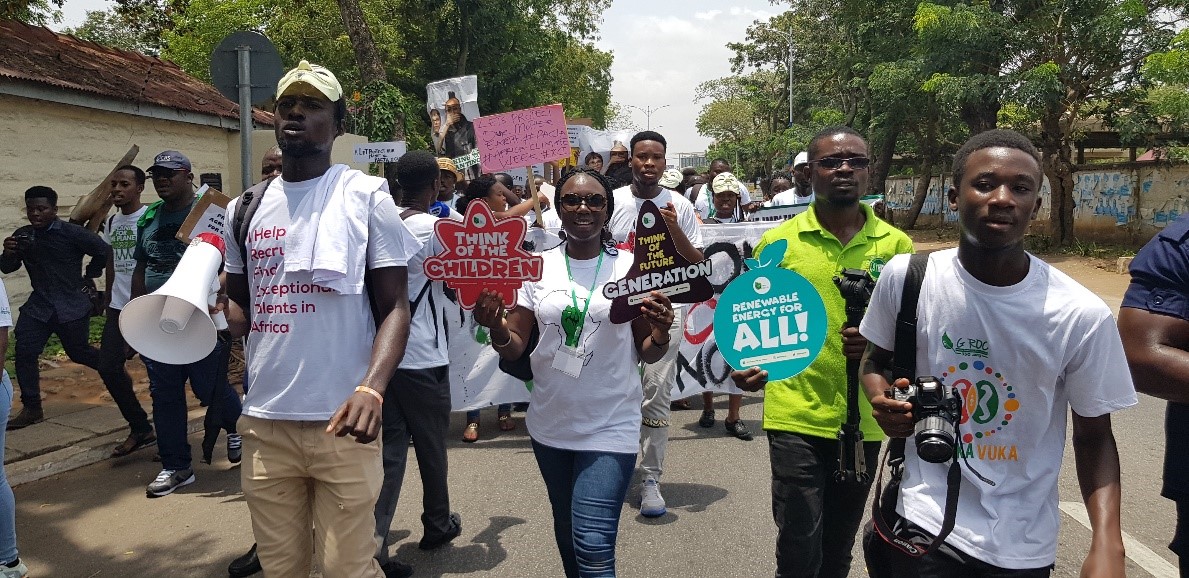
In Cape Town, South Africa: Learners from around 50 schools across the city will protest the South African Government’s lack of action on the climate emergency. 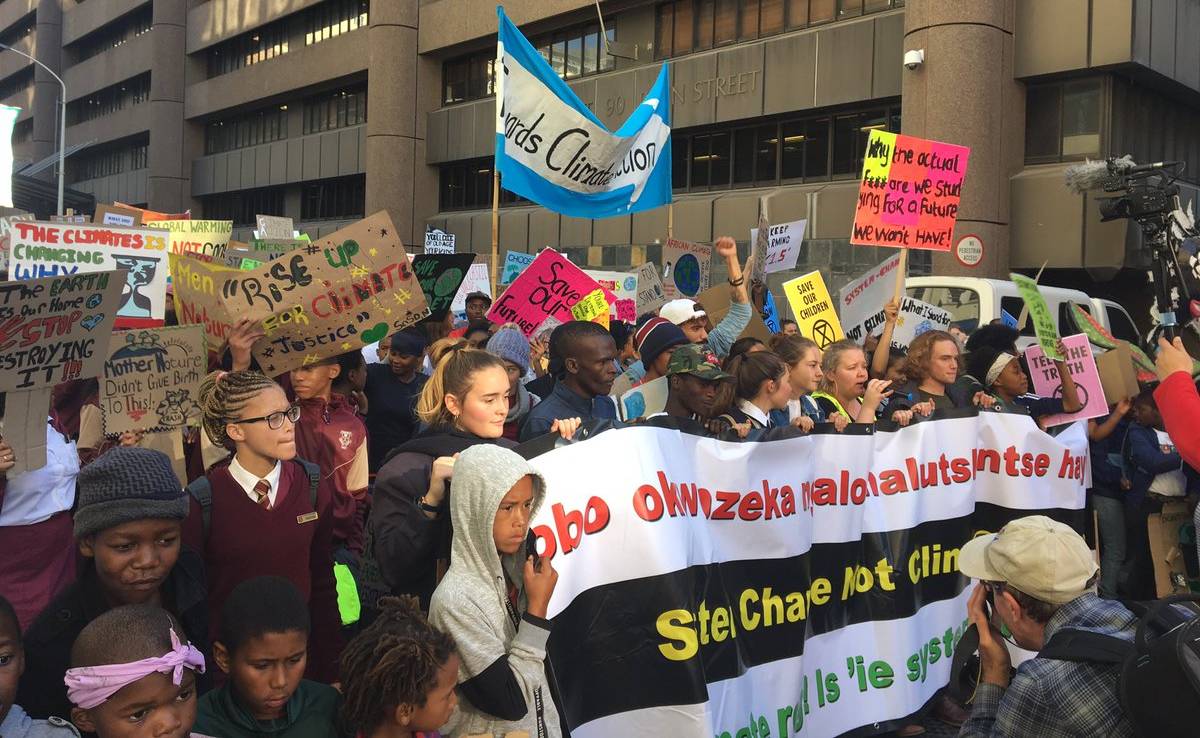
In Goma, Democratic Republic of Congo: local communities, civil society organisations and young people will mobilize around climate issues to inform the population about the climate emergency and call on President Felix Tshisekedi to adhere to national and international conservation laws, protect farmers and prioritize investment in renewable energy. 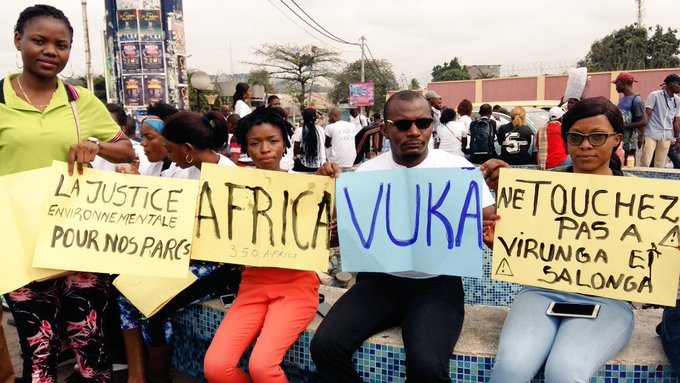
In Johannesburg, South Africa: There will be a peaceful march to call for an acceleration of a just transition towards a low carbon, renewable energy future. 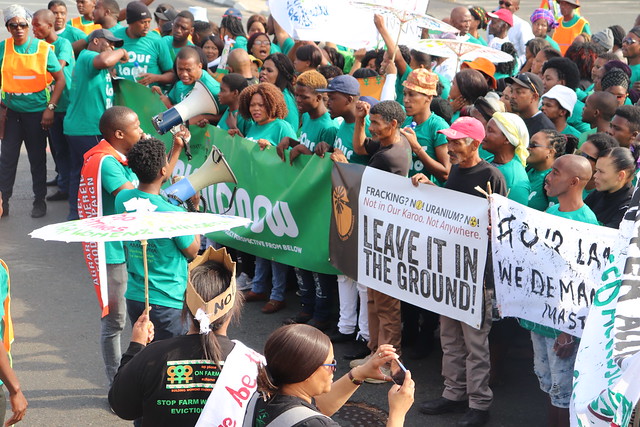
In Kaolack, Senegal, Action Solidaire International is organising a climate camp that will be followed by a march to call on policymakers to stop the Bargny coal-powered station from operating.
In Nairobi, Kenya, Led by thousands of workers, students and youth organizers all across the country are coming together to let their government know that they won’t stand down from their demands for a shift to 100% renewable energy.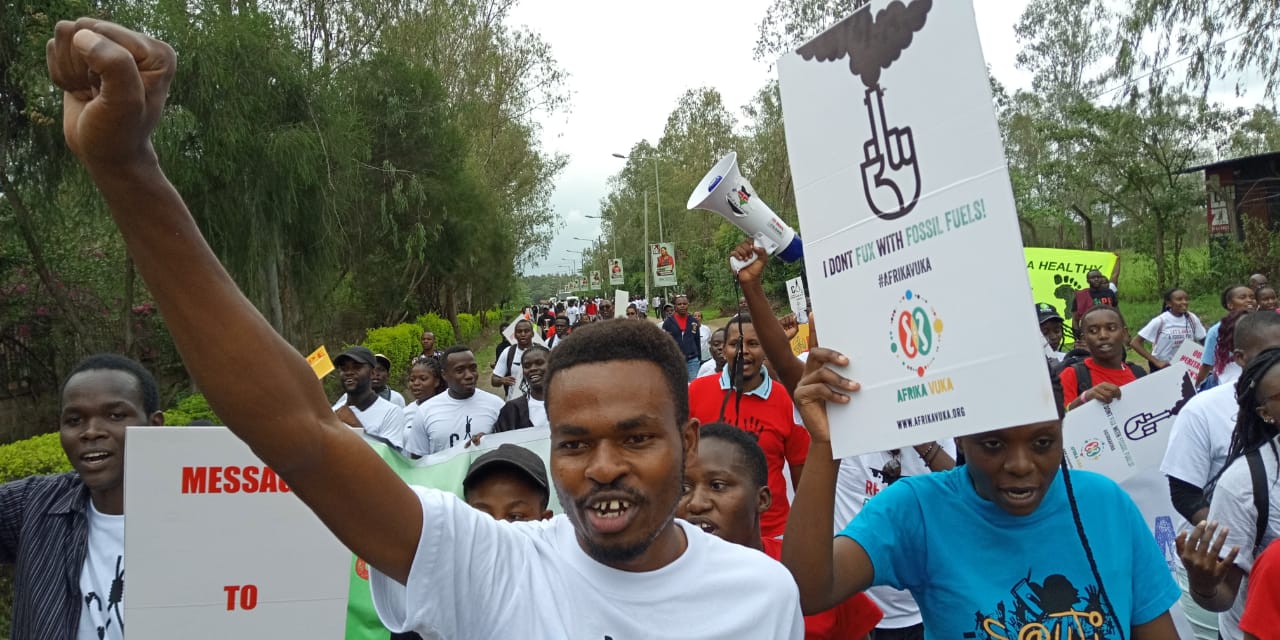
Many more people in Africa and around the world are joining the Global Climate March to demonstrate that there is a global movement demanding real climate action. Check out the website to see if something is planned near you already - or register your own event.
Telling the African Climate Movement Story
Earlier this month, I had the pleasure and privilege to travel to Gisenyi in Rwanda for a #AfrikaVuka digital organizing and storytelling skills training.
About 20 activists gathered from across Africa to participate in the training. We spent 4 days sharing knowledge, stories, and songs, while building trust and digital organizing skills to take the #AfrikaVuka movement to the next level.
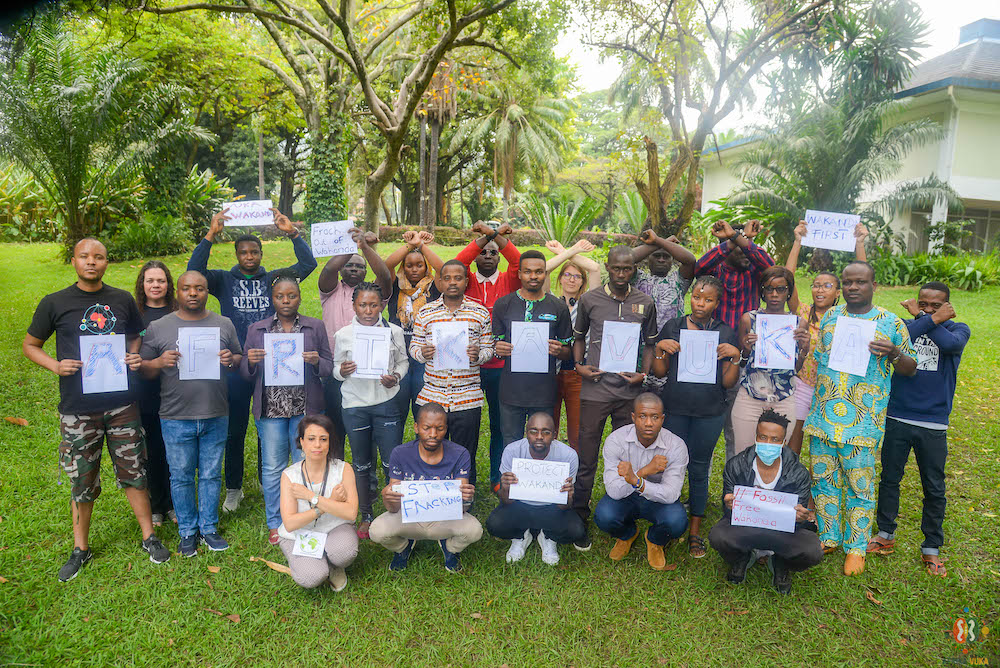
As discussions on the importance of climate stories unfolded, common themes crossing geographic boundaries gave insight into how stories all over Africa are being told. It became imminent that in order to grow the climate movement in Africa, communities living at the frontlines of climate change need to own their stories -- and also challenge the way stories about Africa are told in general.
Entrenched narratives of Africa have often left the continent misunderstood. Crude descriptions of Africa, scaling from the ‘Dark Continent’ to the ‘Emerging One” ignore the complexities of Africa. Instead of trapping Africa into a single story or narrative, this retreat became a space to talk about storytelling practices that speak in their own voice and organizing tools that resonate with people and empower them to tell stories as they are.
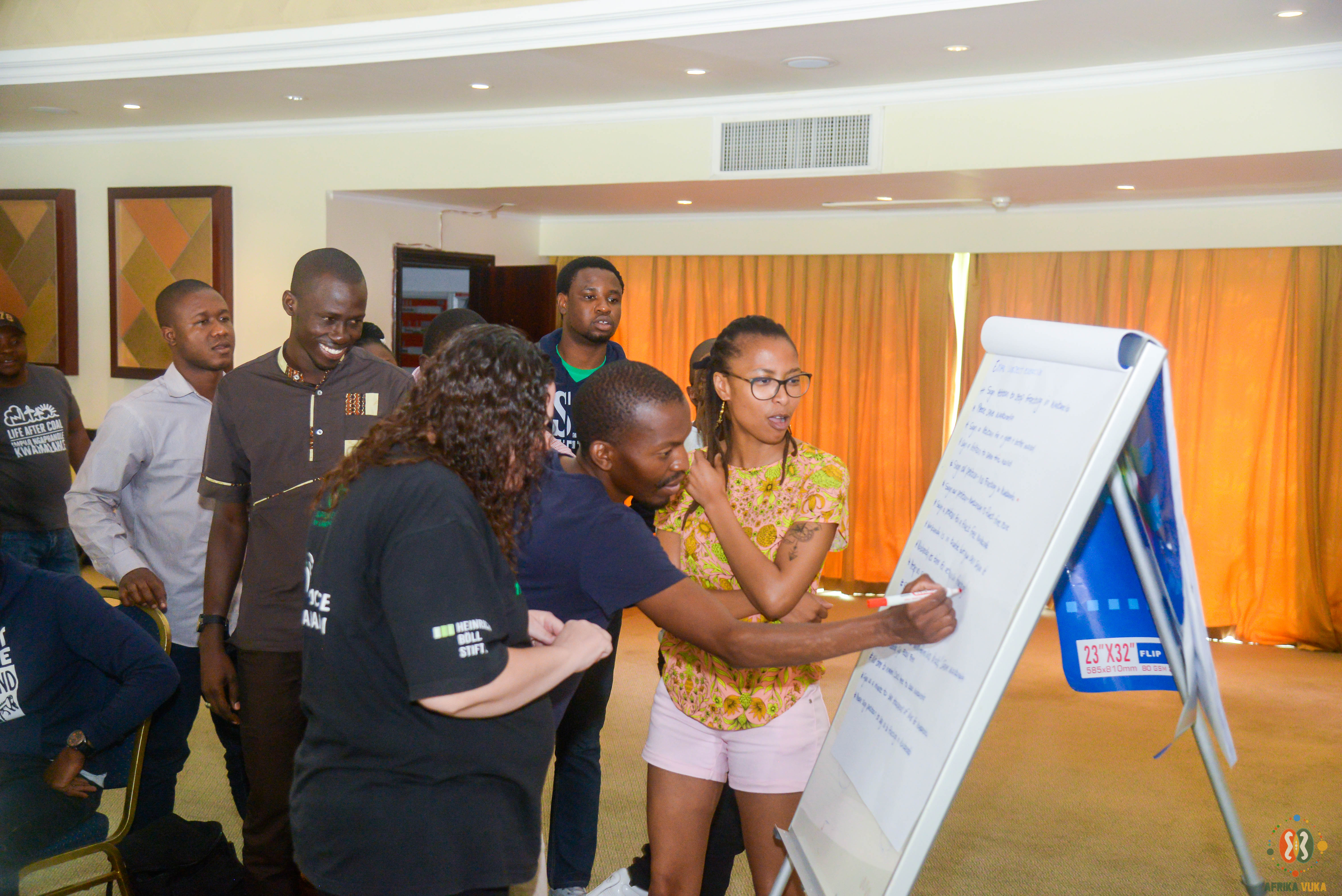
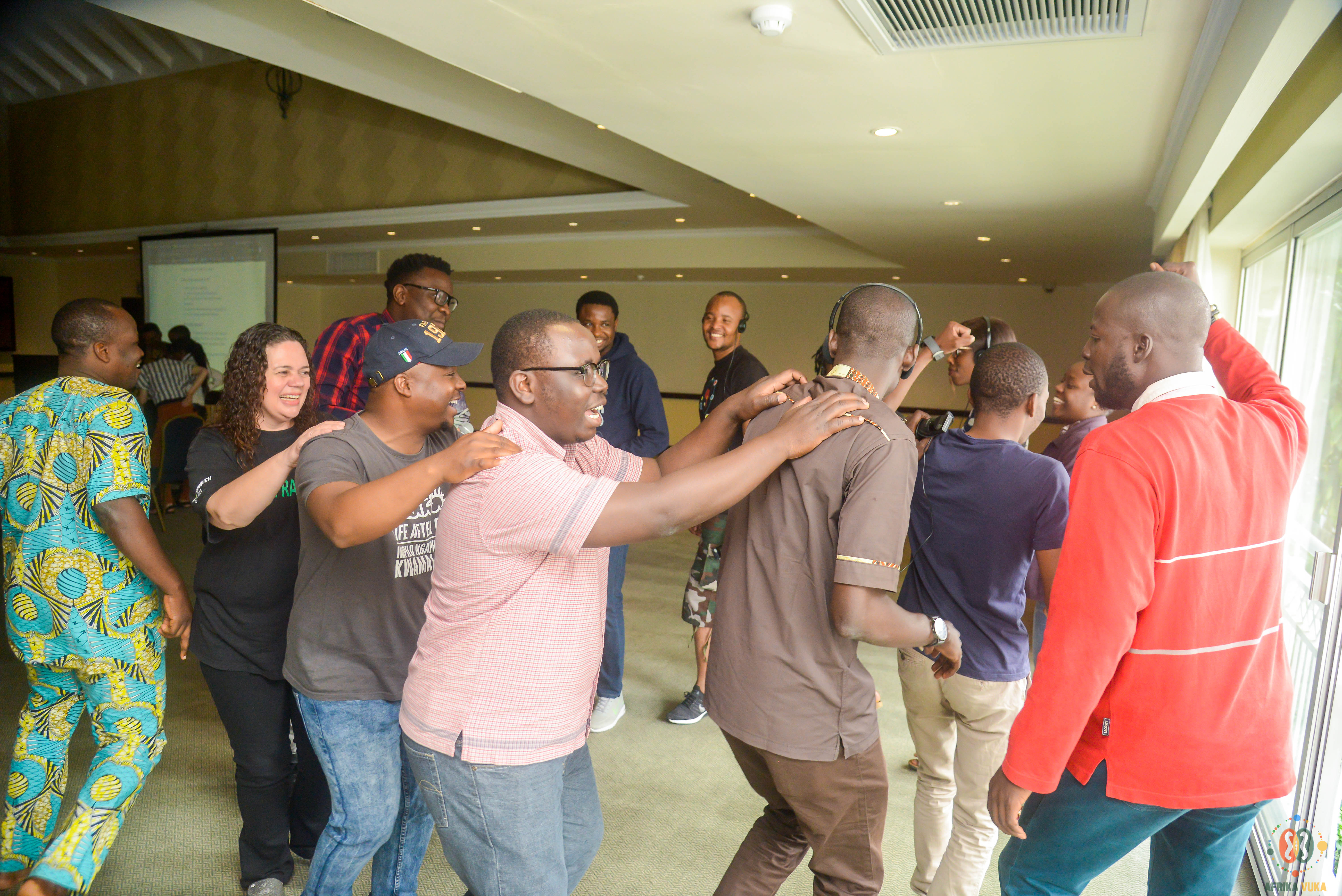
Key take-aways:
- It’s clear that we have to go through a mental shift in our perception of the climate movement in the African context. These experiences can be united with efforts to tackle the climate crisis on a global scale.
- Connecting the climate fights across Africa isn’t only about solidarity, it’s also about strategy. It’s about recognizing that climate change isn’t a single-issue problem. We need to organize not just around climate change, but building the kind of solidarity and unity and that can bring on a massive economic and social transformation that works for everyone -- and use tools and storytelling tactics that speak in individual voices and tools that resonate with our communities.
As the retreat came to a close, a participant shared his story with the group and said: I left my stable life in the UK to go back home and do something about the climate crisis. To me, this is not just about the climate, this is about survival. I can’t think of a better way to convey how I was quickly reminded about the urgency and importance of the work we’re doing together. The need for collective action couldn't be more urgent. As the climate crisis accelerates, it’s up to all of us to take risks for a more just and sustainable world while we still can.
The powerful activists that I met in Gisenyi took their newfound skills and connections back to their local contexts. They’re ready to mobilize in solidarity with communities and take the fight against fossil fuels to the next level. Next stop is the Global Climate Strike. These activists will join thousands of people around the world to organise climate strikes in workplaces and communities on 20 and 27 September. Find out more here.
More: As part of the storytelling session, participants were asked to create content that explains why they’re in the fight for climate justice. Here’s some of what came out it:
Photos:
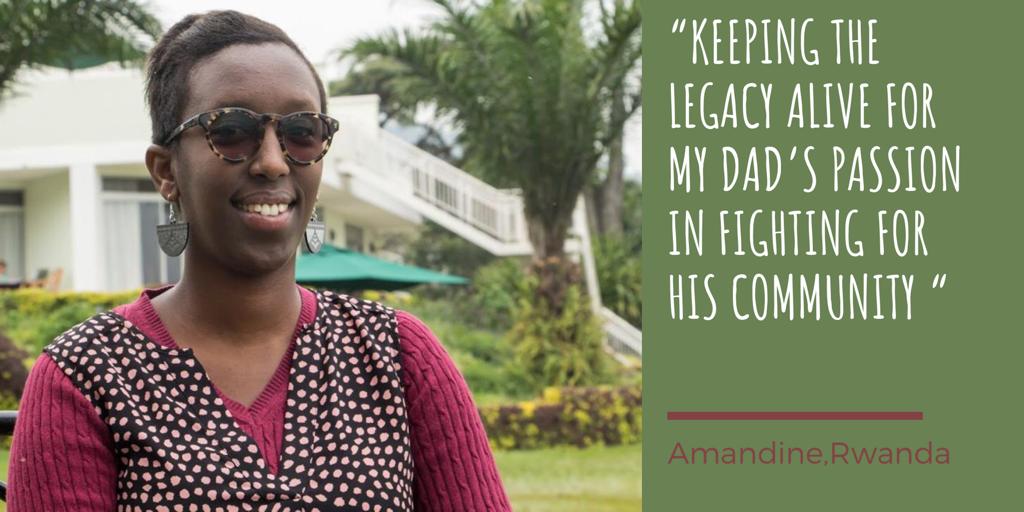
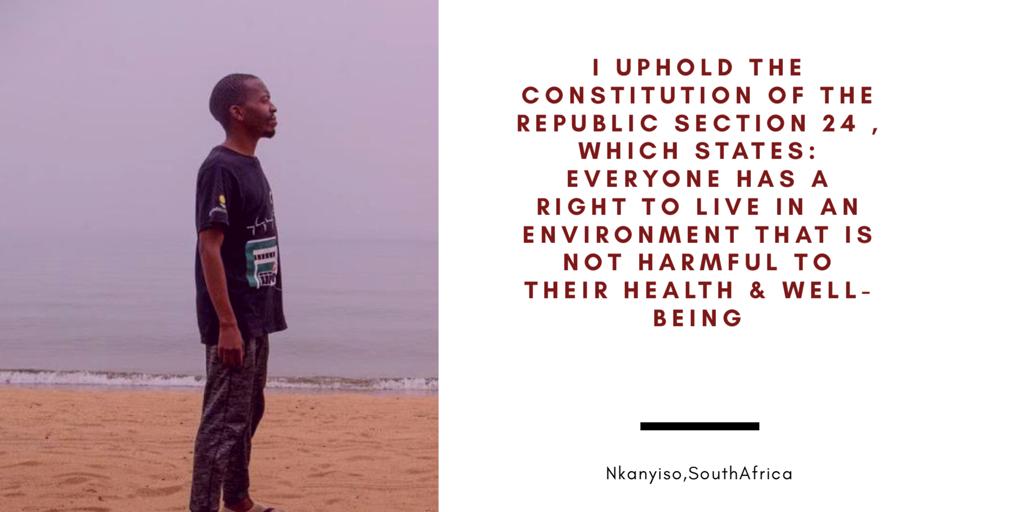
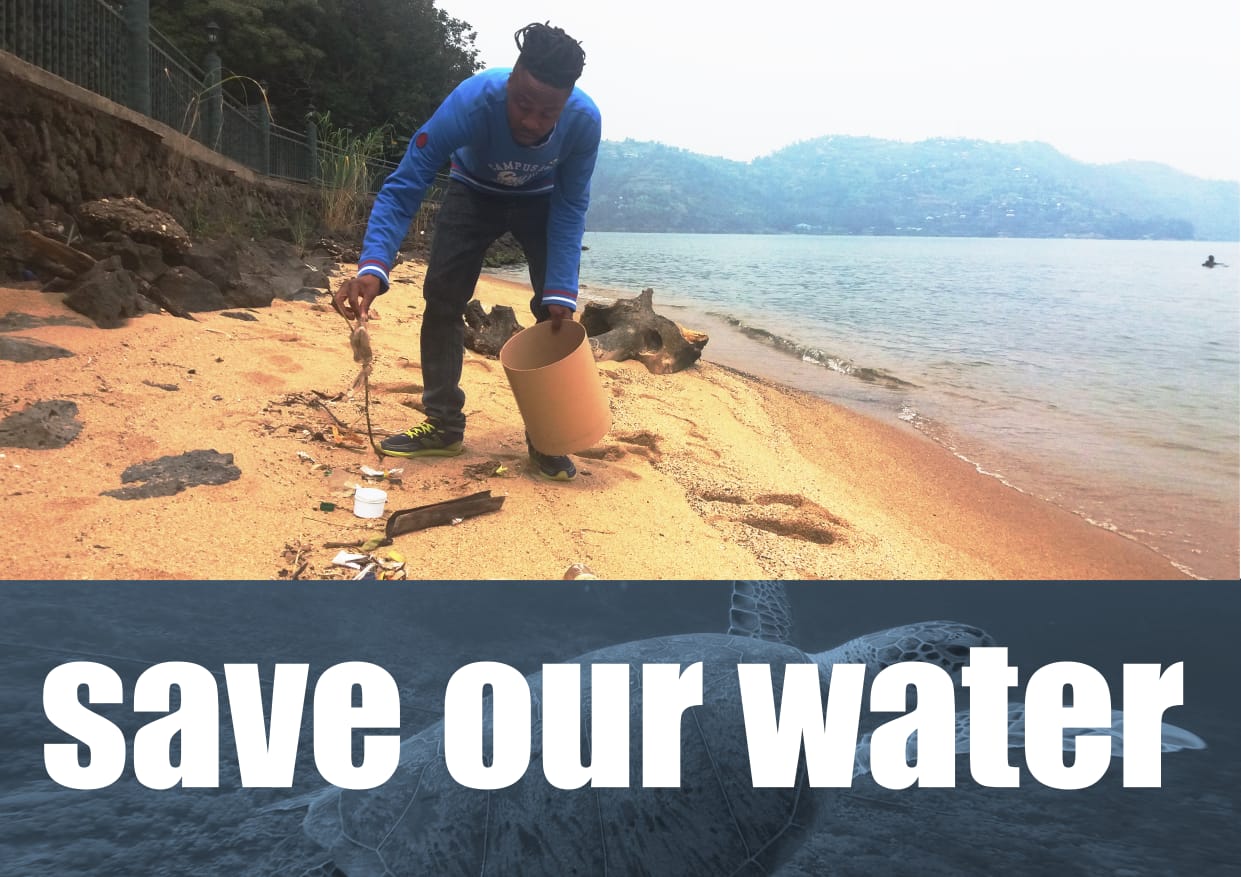
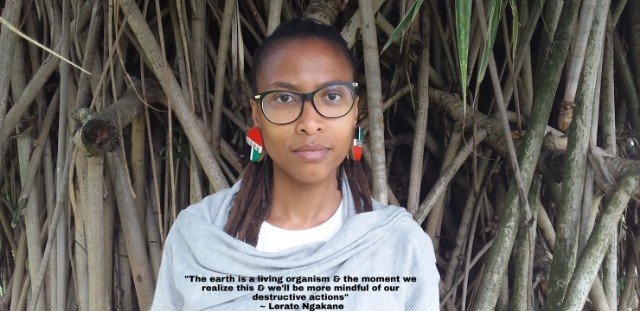
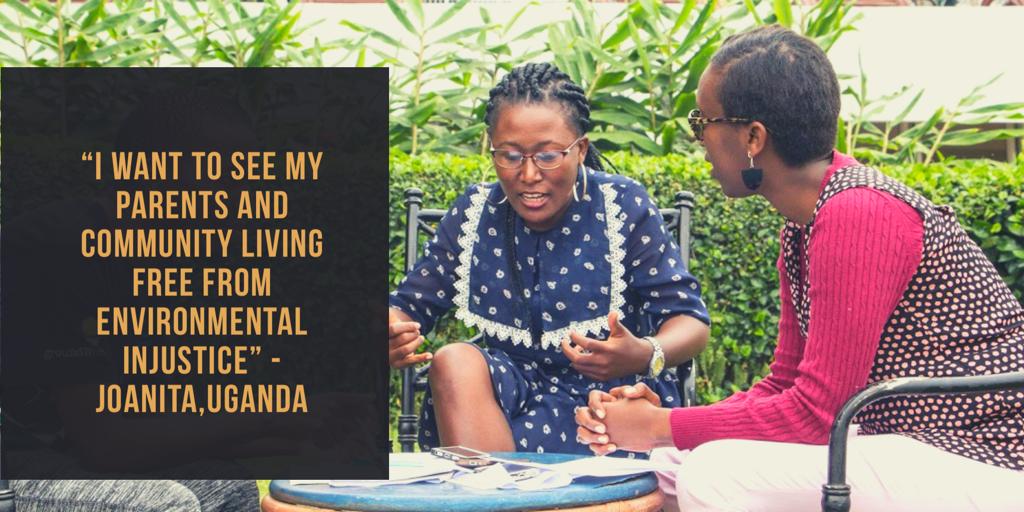
Videos:
Author: Chris Kif, 350Africa Digital Campaign Manager
#AfrikaVuka Uprising: 48hours of incredible hope and determination
#AfrikaVuka, a call for climate justice and the end of fossil fuel use in Africa. Last week, we saw continent-wide events and protests demanding action on the climate crisis. While several events were cancelled due to their ‘political’ nature in Uganda, Kenya and Senegal, these obstructions by authorities in both countries paled in comparison to how communities from Nairobi, to Cairo, Kinshasa to Cape Town showed leaders the way to fight climate change:
The resounding message of climate change and the sound of awakening to address it were heard in Kano, Nigeria. @350Africa @surgeafricaorg #afrikavuka #AfricaDay2019 pic.twitter.com/EXZv4NKGvz
— 350nigeria.org (@350nigeriaO) May 26, 2019
La marche de protestation contre l'exploitation du pétrole dans #Parc #virunga & des soutiens à l'utilisation des #énergies #renouvelables à Kinshasa #AfrikaVuka avec à la participation des organisations des jeunes et celle des jeunes #RDC #Afrikavuka@350Africa @ZER0_missions pic.twitter.com/kE4gj66WBH
— HOPELANDCONGO (@Hlcasbl) May 25, 2019
These #AfrikaVuka actions coincided with Africa Day and Global Youth Strikes for Climate, where school students demanded action to prevent further global heating and climate change. Communities across the continent are fighting for the future, as record storms, droughts and flooding devastated entire regions. Africans can no longer ignore the fact that they have contributed the least to the climate crisis but are already experiencing its worst impacts. We need a sustainable path for our future and the solution is simple, We must stop using fossil fuels.
#AfrikaVuka is a campaigning platform aimed at uniting and supporting citizens, communities, organisations and coalitions working to build a future which is free from the destructive impacts of the climate crisis across Africa. You can be a part of the movement here.
Organising for a new wave of people-powered campaigns in Africa
In February, the 350 Africa team brought together organisers and activists from across the continent for a 5-day workshop as part of the new regional campaigning platform - Afrika Vuka (coming soon!).
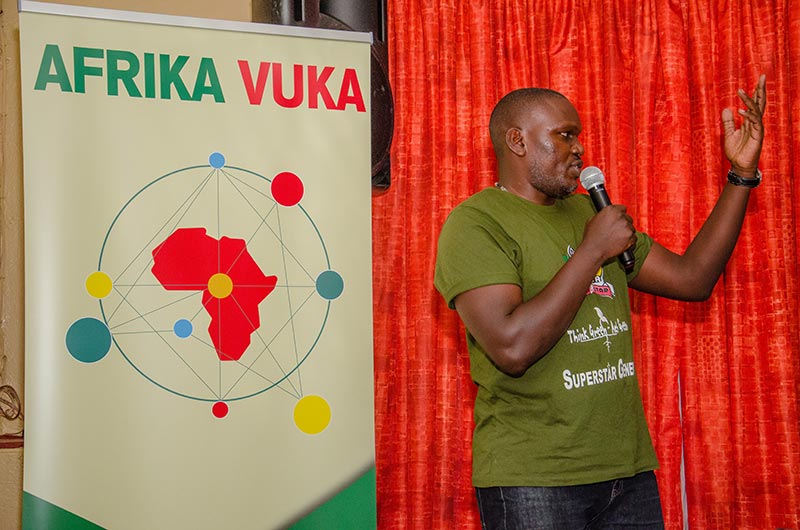
The main goal of this gathering was to strengthen the campaigning and organizing capacity of local organisers to run successful and impactful campaigns in their respective countries. On a continent where politicians and the extractive industry continue to spread ridiculous lies about the so-called benefits of fossil fuels, there’s a need to constantly re-strategize and ensure that our organisers are well trained and equipped to successfully challenge such devastating projects.
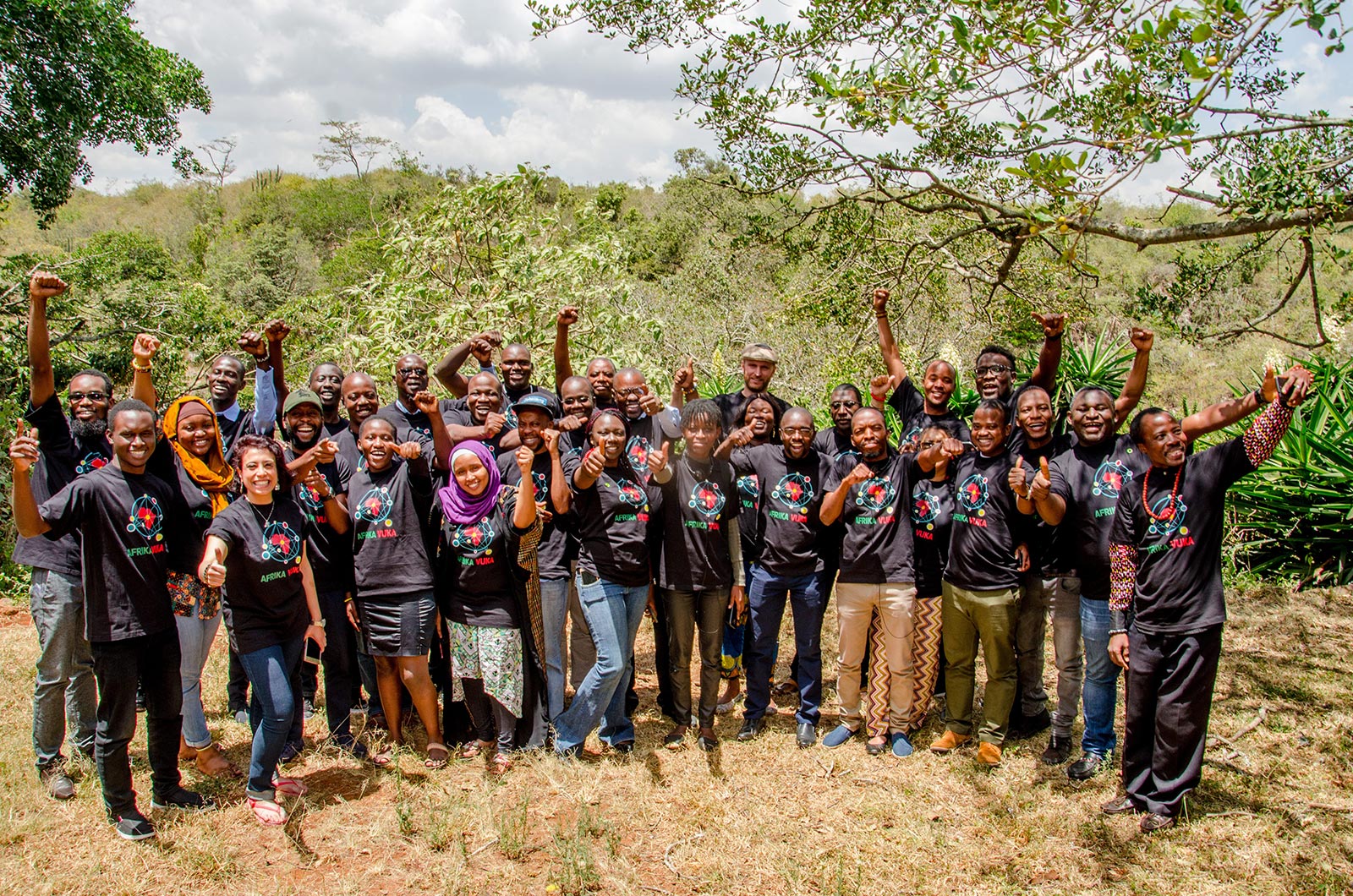
25 participants joined us. The following countries were represented: DRC, Egypt, Ghana, Ivory Coast, Kenya, Nigeria, Sierra Leone, Senegal, South Africa, Tanzania, Uganda and Zimbabwe. All of them are directly involved in ongoing campaigns and initiatives aiming at challenging coal mining, oil exploitation, extractive projects or championing alternative energy solutions.
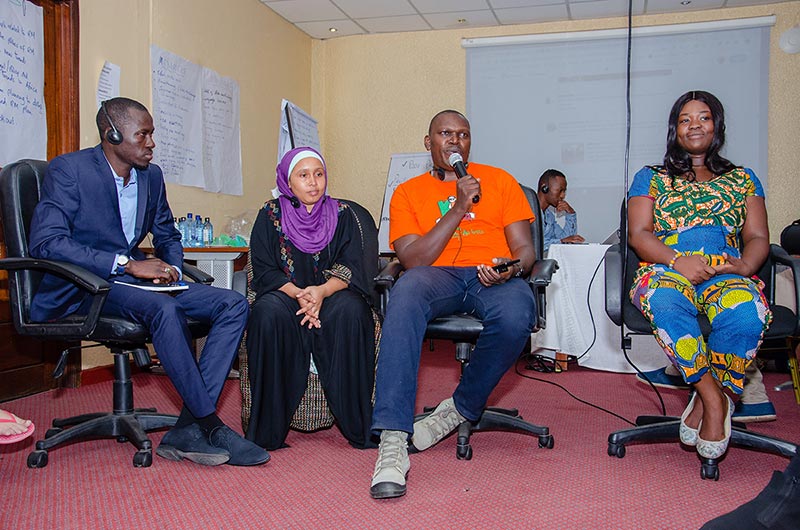
During the first four days of the workshop, we presented Afrika Vuka, an upcoming campaigning platform connecting citizens, struggles and groups around the continent working to building a future that’s free from the destructive impacts of the fossil fuel industry. Five case studies from Kenya, Senegal, Ivory Coast, South Africa and Africa Climate Reality Project were shared to give an in-depth understanding of such campaigns in terms of recent developments, successes, challenges, next steps and how regional support and global amplification can boost such struggles.
Though the programme was rather packed, we managed to create open sessions to discuss some of the emerging themes, notably learnings from our past organising experiences and safety in organising, where we identified some of the common threats and risks experienced on the ground by participants.
Practical sessions on digital organising, storytelling, shifting the media narrative, building last relationships with reporters, planning and organising a successful day of action, research-based campaigning, engagement pyramid.
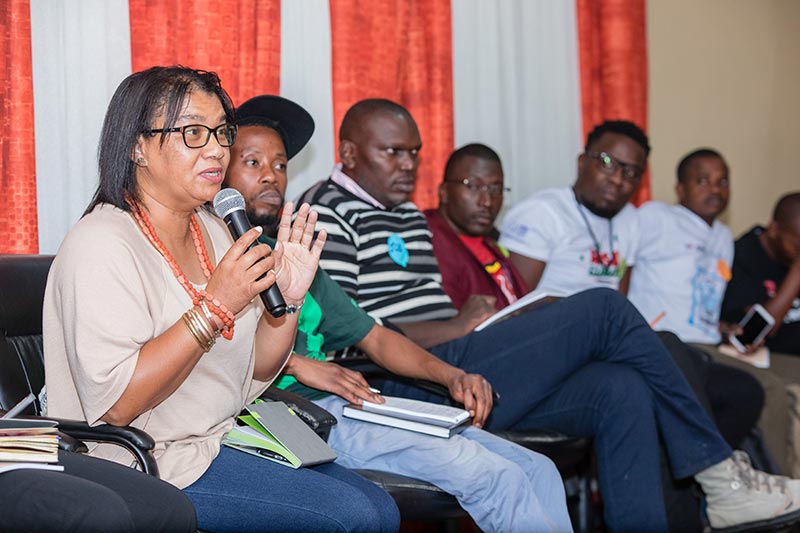
“Brainstorming, storytelling and interactive workshops were my favourite part to share experience and knowledge,” says Asmaa Hanafi, one of the participants from Egypt. “It was interesting to let each group present their success story to divest fossil fuels.”
We look forward to the upcoming moments as we continue to grow and consolidate the regional climate movement through #AfrikaVuka platform.
Sign up here for updates to hear when the new Afrika Vuka platform launches!
Break Free 2018 - Here's What Happened!
On Friday, people across Africa stepped up their commitment to keeping fossil fuels in the ground with courageous actions that have challenged business as usual across Africa.
Click here to see photos from Break Free actions that happened on Friday!
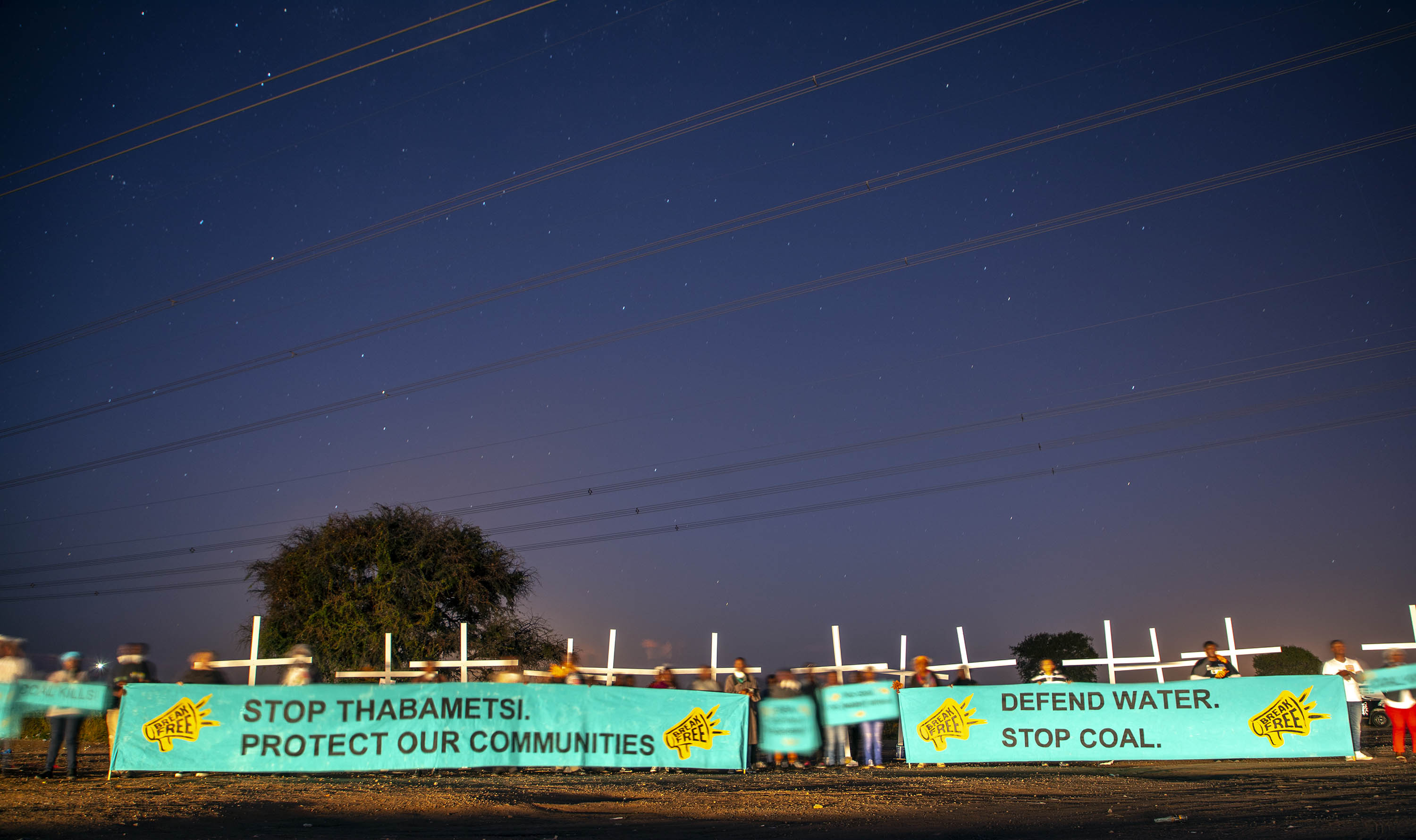
Break Free stood up to the proposed coal-fired station in Lamu, Kenya - told the Development Bank of Southern Africa to not fund Thabametsi, or any more coal projects in South Africa - reached out to communities in the Eastern region of Ghana (Dome, Asayansu, Kwesi Kunde, Fori) to promote and distribute renewable energy solutions.
#Breakfree Press Conference in Abuja Made Headlines, See one below:
We will not rest untill we #BreakFree from Fossil Fuels and embrace Renewable Energy for the good of all of us. @350Africa @AfricaCRP @ninteretse @GlenTyler @groundWorkSA @Rukiya_Khamis https://t.co/LprVpyiwgb— David Mike Terungwa (@miketerungwa) May 27, 2018
With powerful actions involving people across the continent, Break Free from Fossil Fuels took the fight directly to the fossil fuel industry and showed just how powerful we can be when we act together.
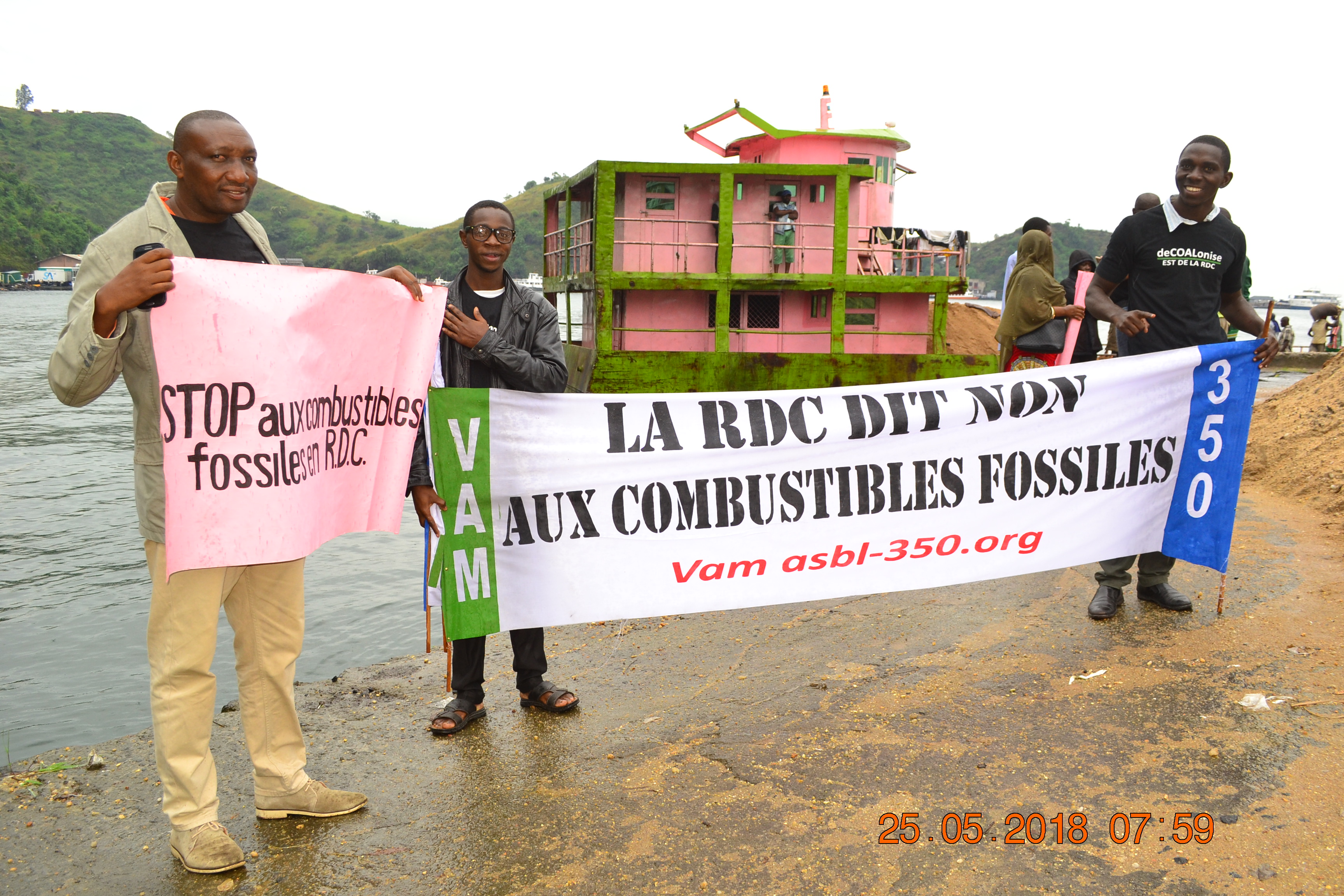
The only way we’ll defeat the fossil fuel industry, which is wrecking our climate is if we all come together to show it up for what it is: an immoral and dangerous industry that is at odds with a safe future.
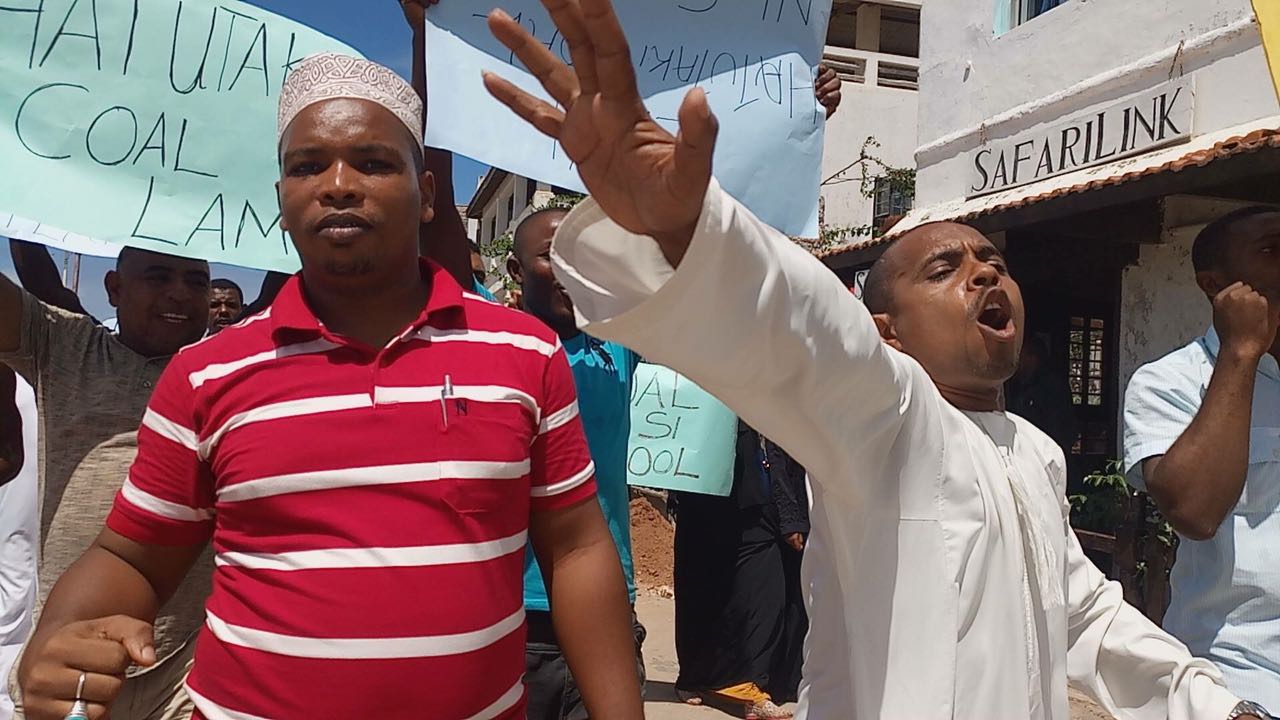
As the planet becomes dangerously hot, our greatest collective hope is that this movement continues to grow in size, strength and boldness. Friday showed what we can accomplish together.
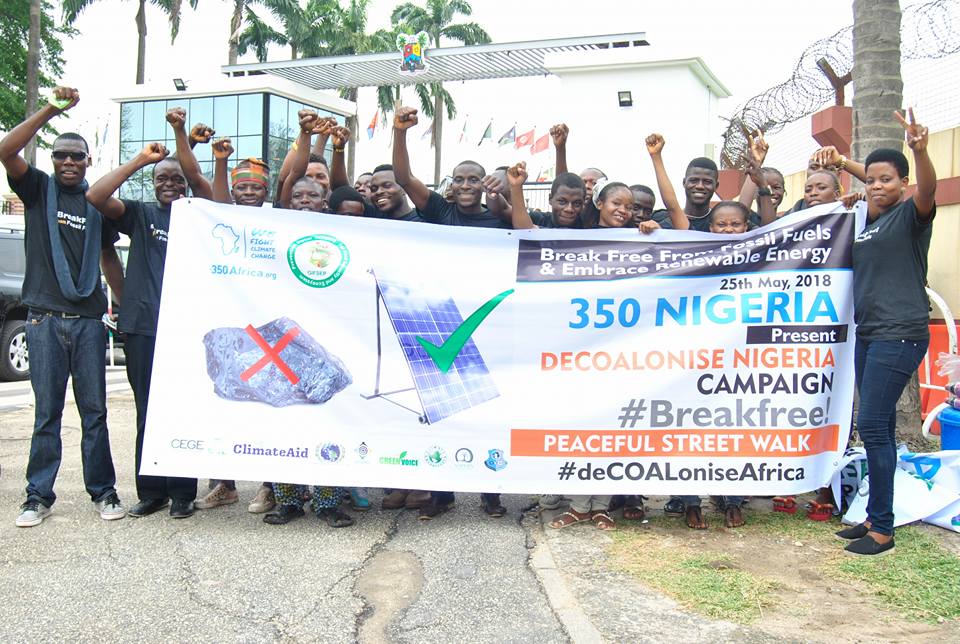
In every country that took action on Friday -- Cote D’Ivoire, South Africa, Nigeria, Egypt, Zambia, Senegal, Kenya, Togo, Uganda, Ghana -- organising against fossil fuels and for renewable energy will continue, stronger than ever.
Children are the future of tomorrow, let us habit train them to #breakfree and go for #fossilfree. Children in Kenya are saying #CoalSiCool @350_kenya @350Africa @ninteretse @deCOALonize @LamuYouthAllia1 @savelamu #deCOALonize pic.twitter.com/OjlAb902pj
— BintiKhamis (@Rukiya_Khamis) May 25, 2018
Because people everywhere see the writing on the wall: the planet is heating up, renewable energy is becoming more affordable, and the fossil fuel industry is entering a financial crisis, the time has come to stand up to its power and pollution.
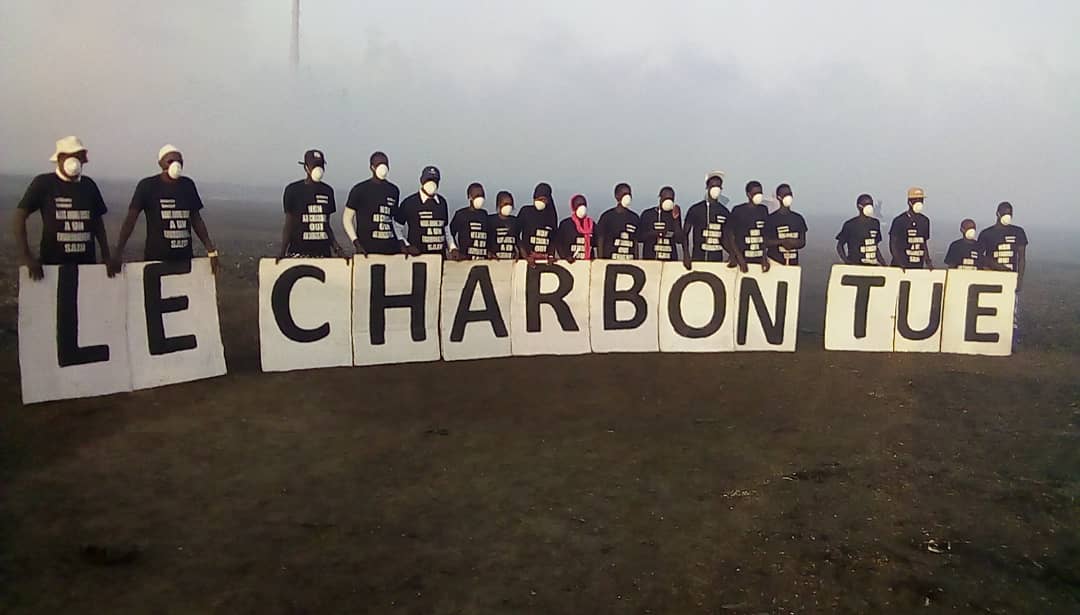
This movement will continue to grow in all of its forms: divesting from fossil fuels, blocking fossil fuel extraction and transportation, passing fracking bans, stopping new coal plants, ending fossil fuel subsidies, and securing commitments build a 100% renewable economy.
in case you missed us ,#GreenEnergy is the future.#breakfree #fossilfuel #FossilFriday #fossilfree #ClimateChange pic.twitter.com/9pw4wjvn9k
— Asmaa Hanafi (@AsmaaHanafi1) May 27, 2018
But our work does not end here. The need for a rapid transition to renewable energy has never been more urgent, and the way we get there is by continuing to organise, mobilise and campaign.
This how we did it in Lagos Nigeria. Happy that African Youths are Championing this course- We must #BreakFree from Dirty Energy. @350Africa @AfricaCRP @gifsep4climate @ninteretse @GlenTyler @Rukiya_Khamis pic.twitter.com/BJJVFp9bch
— David Mike Terungwa (@miketerungwa) May 26, 2018
Even though Break Free 2018 is now over, you can get involved in climate campaigns and mobilisations by signing up to the deCOALonise.africa platform mailing list, or getting involved in the global mobilisation, Rise for Climate.
Break Free 2018: These events caught our imagination.
-
In Kenya - Folks will be rolling out coordinated actions - Photo exhibitions, debates, twitter chats, and an “AntiCoal Khanga show“ in Lamu challenging women to use a traditional attire (Khanga: a vibrantly coloured East African cloth worn by women) to tell the African story of fossil fuel impacts.
-
In Nigeria - People will be joining forces to talk about the easy switch from generators and kerosene for lighting to solar in a caravan around a college. A press conference with people from mining-affected communities, a renewable energy presentation and non-violent direct action training will also be held.
-
In Ivory coast - Film screenings and community debate to denounce a coal plant project in San-Pedro, alongside a Twitter chat addressed to the AfDB - who are funding coal projects across Africa to reiterate that Ivory Coast doesn’t need coal, but rather renewables to satisfy its energy demand and accelerate its development.
-
In South Africa, events range from rallies to workshops on climate change and the case for breaking free from fossil fuels, to people calling on the Development Bank of Southern Africa to publicly commit to not funding the Thabametsi coal-fired power plant.
-
In Senegal - Civil society and climate justice groups, local communities, students and women groups are attending a large community forum in Bargny to oppose the launch of the first coal power plant in Senegal and call on the government to stop this project.
-
In Ghana - 350 GROC is reaching out to communities in the Eastern region of Ghana (Dome, Asayansu, Kwesi Kunde, Fori) to mobilise on renewable energy This event is part of the ongoing campaign led by GROC to advocate for a rapid transition towards 100% renewables as a way of increasing electricity access to communities.


